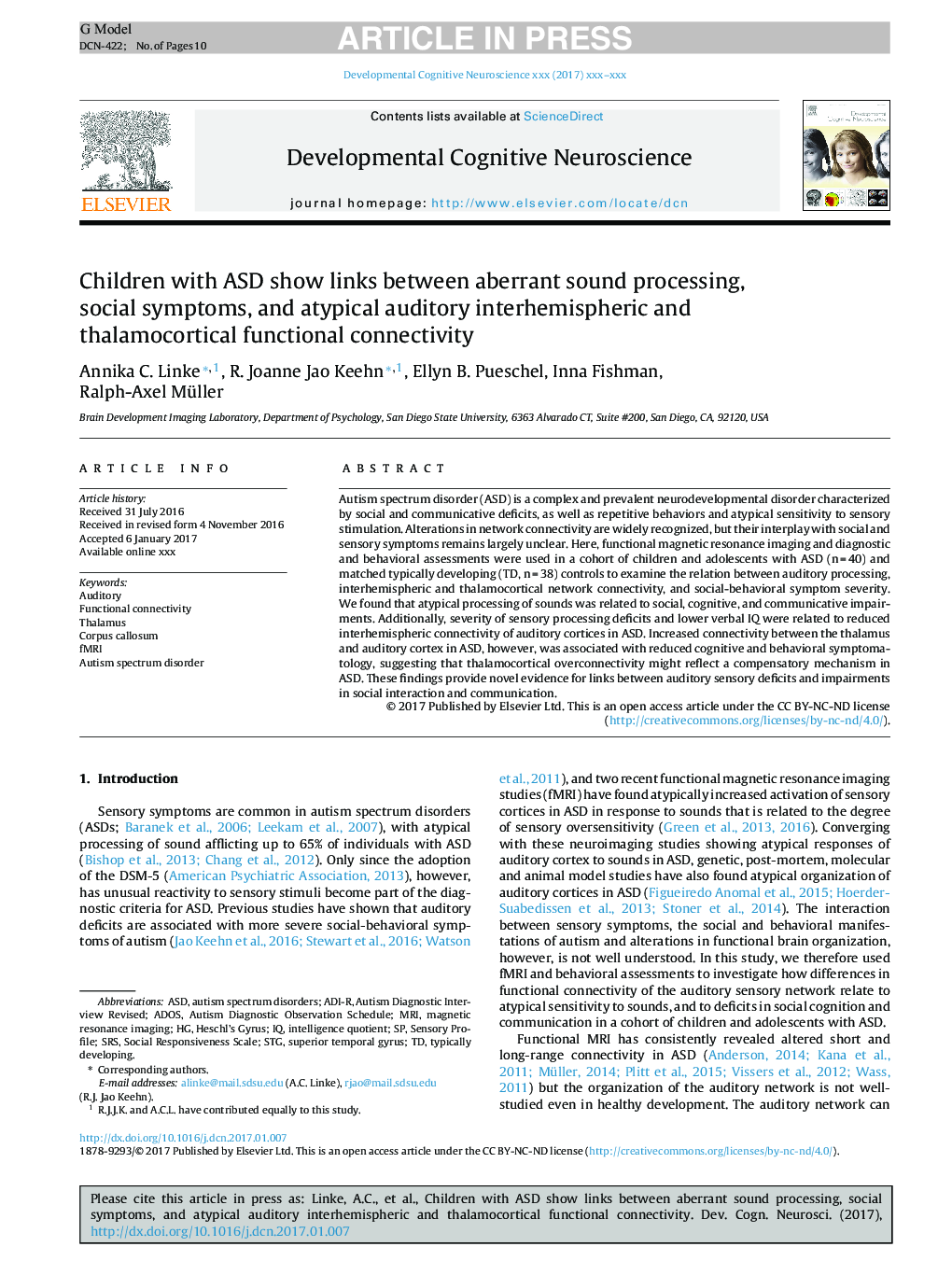| Article ID | Journal | Published Year | Pages | File Type |
|---|---|---|---|---|
| 8838321 | Developmental Cognitive Neuroscience | 2018 | 10 Pages |
Abstract
Autism spectrum disorder (ASD) is a complex and prevalent neurodevelopmental disorder characterized by social and communicative deficits, as well as repetitive behaviors and atypical sensitivity to sensory stimulation. Alterations in network connectivity are widely recognized, but their interplay with social and sensory symptoms remains largely unclear. Here, functional magnetic resonance imaging and diagnostic and behavioral assessments were used in a cohort of children and adolescents with ASD (n = 40) and matched typically developing (TD, n = 38) controls to examine the relation between auditory processing, interhemispheric and thalamocortical network connectivity, and social-behavioral symptom severity. We found that atypical processing of sounds was related to social, cognitive, and communicative impairments. Additionally, severity of sensory processing deficits and lower verbal IQ were related to reduced interhemispheric connectivity of auditory cortices in ASD. Increased connectivity between the thalamus and auditory cortex in ASD, however, was associated with reduced cognitive and behavioral symptomatology, suggesting that thalamocortical overconnectivity might reflect a compensatory mechanism in ASD. These findings provide novel evidence for links between auditory sensory deficits and impairments in social interaction and communication.
Keywords
Corpus callosumStgSRSADI-RFunctional connectivityautism spectrum disordersAutism spectrum disorderMRIAutism Diagnostic Observation Scheduletypically developingintelligence quotientThalamusMagnetic resonance imagingfMRIsuperior temporal gyrusAuditoryHeschl’s gyrusSensory profileSocial Responsiveness ScaleASDADOS
Related Topics
Life Sciences
Neuroscience
Behavioral Neuroscience
Authors
Annika C. Linke, R. Joanne Jao Keehn, Ellyn B. Pueschel, Inna Fishman, Ralph-Axel Müller,
